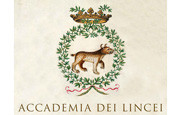A South-North-South Circular Programme for Sustainable Development
UNESCO-TWAS, in collaboration with the Lincei Academy and the International School for Advanced Studies (SISSA), offers young scientists from Least Developed Countries the opportunity to visit either research laboratories at Centres of Excellence in Trieste or Udine, Italy.
For details, see below and in the application form. Research proposals must fall under the umbrella of sustainability science and thus be relevant to areas that support the United Nations Sustainable Development Goals (SDGs).
The purpose of these exchange fellowships is twofold:
- To enhance the capacity of promising experts, especially those at the beginning of their career
- To catalyze the formation of links for further collaboration.
The Italian Ministry of Foreign Affairs and International Cooperation and the Italian Agency for Development Cooperation, through UNESCO-TWAS, will cover travel expenses and provide subsistence costs for the stay in Italy. The administration and financial operation of TWAS is undertaken by UNESCO in accordance with an agreement signed by the two organizations.
Research Visits to Centres of Excellence
Eligibility
- Applicants must be a maximum age of 40 years on 31 December of the application year
- Applicants must hold an MSc (or higher degree)
- Applicants must be nationals of a least developed country (See list at: https://www.un.org/development/desa/dpad/least-developed-country-category/ldcs-…)
- Applicants must hold a research position in a least developed country
- Particular attention will be given to research projects that fall under the umbrella of sustainability science
- Women scientists are encouraged to apply
- Applicants already on site in the host country are not eligible
- Only applications in the scientific fields specified below and listed in the application form will be considered.
Eligible Host Institutions
Eligible host institutions are the following:
- International School for Advanced Studies - SISSA
- International Centre for Genetic Engineering and Biotechnology - ICGEB
- National Institute for Nuclear Physics - INFN (only one host supervisor available: Prof. Andrea Vacchi)
- National Institute of Oceanography and Applied Geophysics - OGS
- University of Trieste - www.units.it/en
- University of Udine - www.uniud.it/en
- Materials Foundry-National Research Council - IOM-CNR
- Area Science Park - en.areasciencepark.it/
- Elettra Sincrotrone Trieste - www.elettra.eu/
Scientific Fields
Only applications in the fields listed below will be considered. Research proposals must be relevant to areas that support the SDGs (please see https://sustainabledevelopment.un.org).
- SISSA
- Astroparticle Physics (APP)
- Astrophysics and Cosmology (APC)
- Theory and Numerical Simulation of Condensed Matter (CM)
- Physics and Chemistry of Biological Systems (SBP)
- Statistical Physics (SP)
- Theoretical Particle Physics (TPP)
- Data Science Excellence Department Initiative (DS)
- Cognitive Neuroscience
- Neurobiology
- Functional and Structural Genomics
- Geometry
- Mathematical analysis
- Mathematical modelling
- Mathematical physics
- Numerical analysis and scientific computing
See: https://www.sissa.it/interdisciplinary-laboratory
See: https://www.sissa.it/news/sissa-projects-and-covid-19
- International Centre for Genetic Engineering and Biotechnology (ICGEB)
- National Institute for Nuclear Physics (INFN) (only one host supervisor available: Prof. Andrea Vacchi)
- Technologies related to the development of MIR sources for high precision spectroscopies
- Silicon sensors and detection systems developments for synchrotron light sources applications
- Sensors development for high energy astrophysics
- National Institute of Oceanography and Applied Geophysics (OGS) (contact email address: mobility@ogs.it)
- Physical Oceanography
- Applied Oceanography
- Biogeochemistry
- Marine Biology
- Marine Systems Modelling
- Fisheries and aquaculture
- Marine spatial planning
- Eutrophication
- Biodiversity
- Climate adaptation and coastal resilience
- Geosciences
- Borehole geophysics
- Geophysical integrated analysis and new technologies
- Airborne geophysics
- Onshore geophysics
- Applied seismology
- Seismic hazard
- Induced seismicity
- Geodesy
- Seismic engineering
- University of Trieste
- CHEMICAL AND PHARMACEUTICAL SCIENCES
- Supramolecular Chemistry and Nanotechnologies
- Energy, Environment and Sustainable Chemistry
- Analytical and Cultural Heritage Chemistry
- Material Chemistry
- Theoretical and Computational Chemistry
- Synthesis, Characterization and Reactivity of Organic Compounds and Biomolecules
- Inorganic Chemistry and Catalysis
- Bioorganic and Bioinorganic Chemistry
- Drug Design, Synthesis and Formulation
- Algebra
- Geometry
- Mathematical analysis
- Mathematical physics
- Numerical analysis
- Artificial Intelligence
- Big Data
- Application of A.I. to Medicine
- Paleontology
- Structural Geology and Sedimentology
- Applied Geology
- Mineralogy and Petrography
- Geochemistry
- Seismology
- Studies on Antarctica
- Molecular oncology
- Molecular microbiology
- Immunology and molecular pathology
- Pharmacology and chemotherapy
- Nutritional biochemistry
- Biotechnology
- Neurosciences
- Biomaterials and tissue engineering
- Molecular genetics
- Terrestrial ecology
- Marine biology and ecology
- Freshwater biology and ecology
- Plant and animal ecophysiology
- Environmental microbiology and genetics
- Biodiversity informatics and conservation
- Cognition and applied cognitive psychology
- Neuropsychology and Neuropsychological Rehabilitation
- Personality and social psychology
- Typical and atypical development during lifespan
- Cultural heritage - Cultures and cultural Production
- Archeology
- Geography
- History of Art
- Cinema, music, media culture
- Philosophy
- Education: Systems, institutions. Teaching and learning.
- Social Science
- History of Literature
- Literary theory and comparative literature
- Social Anthropology
- History
- Liguistics
- University of Udine
- AGRICUTLURAL, ENVIRONMENTAL AND ANIMAL SCIENCES
- Crop production and yield
- Agro-forestry
- Husbandry
- Biomass use for energy purposes
- Archeology
- History of Art and Architecture
- Cinema, music, media culture
- Artificial intelligence
- Cyber-security
- Big data
- Materials Foundry-National Research Council (IOM-CNR)
- Energy and Environment: Chemical physics of materials, interfaces, and surfaces down to single atoms
- Quantum Materials: Understanding and controlling quantum systems to enable novel technologies
- Sensors and Devices: Exploring and tailoring the electronic, optical and magnetic properties of matter at the nanoscale
- BioMed: Biophysics, Nanomedicine, and Soft Matter
- Area Science Park - contact email address: gestionerit@areasciencepark.it
- GENOMICS AND EPOGENOMICS LABORATORY
- NGS-based Covid19 genomic surveillance
- Environmental microbiome research using NGS
- ELECTRON MICROSCOPY LABORATORY
- Advanced characterization of nanostructured materials by transmission electron microscopy
- ARTIFICIAL INTELLIGENCE AND HIGH PERFORMANCE COMPUTING (LABORATORY OF DATA ENGINEERING)
- Machine learning and deep learning for life sciences
- Representation of information in artificial neural networks
- Statistical and geometric techniques for data analysis
- Large scale scientific computing and HPC for deep learning
- Management of large data structures
- Elettra Sincrotrone Trieste
- Atomic and Molecular physics
- Atomic Force Microscopy
- High-pressure X-ray diffraction
- Inelastic ultraviolet scattering
- Infrared microscopy
- Laser physics
- Mechanical engineering
- Optics, including x-ray optics
- Solid-state photoelectron spectroscopy and spectromicroscopy
- Structural biology and macromolecular crystallography
- THz science and technology
- X-ray absorption and X-ray fluorescence
- X-ray imaging and tomography
Application and Selection Procedure
- Fellowships are awarded by the Selection Committee on the basis of scientific merit.
- Applications should be completed in English.
- Applicants need to submit the complete application form duly signed and send it to the TWAS Secretariat. Applications may be sent by email as long as pages with signatures are sent as scanned documents. Incomplete/unsigned applications will NOT be accepted.
- Material requested:
- the completed application form;
- copy of passport, even if expired (only the page with personal details is required);
- the applicant’s curriculum vitae;
- a statement on scientific interests and future plans for research in sustainability sciences in the home country explicitly referring to which SDGs contributions are likely to be made;
- full list of publications (do not enclose reprints of articles);
- copy of the MSc (or higher) certificate;
- a recent invitation letter obtained through one of the eligible host laboratories listed above which should contain the proposed time of the visit (3 months) and should refer to the proposed cooperation. It should be made evident that the applicant and the proposed host have been in contact regarding the scientific work to be done during the visit and that the conditions for conducting the work have been agreed in terms of the timing of the visit and the facilities available;
- recent letters of recommendation, which must be submitted separately to TWAS by two referees who are familiar with the applicant’s work. N.B. Only signed reference letters can be accepted.
The deadline for receipt of applications is 15 October 2025 Extended deadline: 17 November 2025.
Timescale and recommendations for applicants
It is strongly recommended that you start the process well in advance as the following stages are required:
- study the host institution website to consider research areas and possible host supervisor;
- get in touch with potential host supervisor to introduce yourself and discuss research plan for a possible visit;
- should there be an agreement, obtain acceptance letter from potential host supervisor;
- fill in the form here below, include all required documentation and send your application by email to exchanges@twas.org
Other information
- Applicants must provide evidence that they will return to their home country upon completion of their Fellowship.
- Applications for part-time visits will be considered ineligible.
- Incomplete/unsigned applications will not be accepted. Applications may be sent by email as attachments as long as pages with signatures are sent as scanned documents.
- Successful applicants must not take up other assignments during the period of their TWAS-SISSA-Lincei Research Cooperation Visits Programme.
Please be advised that applicants may apply for only one programme per calendar year in the TWAS and OWSD portfolio. Applicants will not be eligible to visit another institution in that year.


